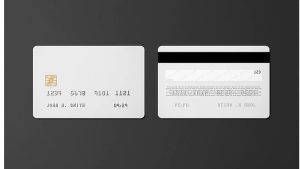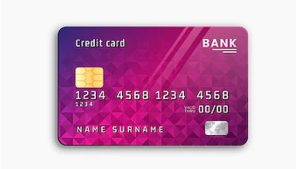Differences Between A Debit Card And A Credit Card: Debit card and credit card are cards designed are designated for monetary transactions, particularly for the withdrawal of funds or payment for purchases of goods and services.
Thus, debit card and credit card serve similar purpose; so similar that people do not mind using the two terms interchangeably. They are the most common card payment systems across the globe.
The two cards are of course built in the same card-like design and function in a similar way. Their differences are however, very material, and they are regarded as the opposite of each other.
Recommended: How to Become A Successful Doctor
In this article and from below, we shall sufficiently define and highlight what each of the cards is like, and then specifically highlight the differences between both.
Debit Card: The preceding word, “Debit” implies a sum of money taken out of a bank account by whichever means which diminishes the amount of money held on the account. It relates to the process of taking money from an account.

Bank is an avenue where customers create an account and deposit their money with the bank for safety and investment purposes. In the Banking principles and practice, when monies are deposited with the bank, it is deemed to be a money loaned to the bank which the customers of course, retain the right to access the money anytime as long as there is no maturity mix-match or special circumstances.
On the other hand, the bank is deemed to be a debtor to the customer to the extent of the amount deposited. Hence, why banks have the practice of issuing debit cards to customers in order to allow them claim their debts anytime and conveniently, in lieu of the more boisterous process of writing a cheque or filling withdrawal form.
A debit card therefore is a card much like a credit card, but which takes money directly from the bank account, as opposed to borrowing the money from the issuer of the card.
A debit card allows the user to withdraw or use money only to the extent of the existing amount in the customer’s account. This means that every debit card must be linked to a particular existing account, whether savings type of account or any other existing type.
See Also: List of Political Parties in Nigeria and their Abbreviations
Thus, a debit card leverages on the funds in a person’s account squarely. By this, a debit card places an outright limit on the spending of the holder to spend only what he has at the moment.
The only exception to this is where the customer is protected by overdraft. With debit card, customers can make withdrawals from the Automated Teller Machines (ATM), Point of Sale (POS), and perform online transactions at the convenience of home or wherever such as purchase and payments.
Inasmuch as debit card is preceded by the word “debt”, it is not a debt instrument. When a debit card is used, the customer gets notified soon after about the hold placed on the amount debited. And before a debit card is used, secret transaction pin is required to be entered by the user in order to grant access to the transaction.
Credit Card: The preceding word, “Credit” implies a privilege of delayed payment which is extended to a buyer or borrower on the belief that the amount delayed to be paid will be repaid.
It is the time given for payment for an advancement or purchase transaction made on trust. Going by the same context, credit is also used to refer to a person’s credit rating or creditworthiness, having regard to their borrowing and repayment history or otherwise.

Credit card is therefore a plastic card, usually with a magnetic strip or an embedded microchip, which is connected to a credit account and used to buy goods or services.
A credit card must be linked to a credit line. The card is used to effect the privileged payment system where transactions can be validated even in short of funds in the account.
The card allows advancement to the user, placing strong reliance on the creditworthiness of the customer. The amount of advance that can be allowed a customer using credit card also depends on the extent of his creditworthiness.
The card is simply a debt instrument which is linked to a line of credit. Credit card allows for the records of a customer’s credit history in order to ascertain his creditworthiness. Just like debit cards, credit cards can be used for cash withdrawals and payment for purchases and services.
Credit card is not issued as of right or by entitlement to customers. It is rather issued based on trust and upon application and qualification by the customer. In other words, the customer must qualify to be issued a credit card.
Upon a customer’s qualification for a credit card, certain credit limit is placed on him. Thus, there is a limit to an amount that can be advanced to him. The limit is usually dependent on the customer’s degree of creditworthiness.
When a credit card is used to purchase a transaction on credit, there is usually a prescribed time for the customer to repay. If he does not pay, he would be charged an interest.
Must Read: Oldest Cities In The World 2023
Differences Between A Credit Card And A Debit Card
1. Function: What debit card does is to allow holders to withdraw money deposited to their bank accounts and only to the extent of the money had.

Debit card cannot be used to withdraw more than the amount existing in an account except where the account is protected by overdraft. On the other hand, a credit card is basically used to obtain advances for the payment of goods and services, and it can be used even when the customer has no funds in his credit line. It is simply used to borrow money which must be paid as and when due or be faced with interest charges.
2. The requirement of creditworthiness: The issuance and use of credit card requires that the customer must be credit worthy in order to qualify to be issued with one.

Whereas for debit card, the requirement of credit worthiness is not necessary.
3. Source Of Funds: The source of the funds withdrawn using a debit card is the amount in the customer’s account, while for credit card, the source of the funds is the credit given by the issuer.
See Also: Major Themes from Things Fall Apart by Chinua Achebe
4. Interest Charges: When credit card is used, the user is usually charged interests at rates depending, and more particularly where the user draws funds and do not pay back within the prescribed limit.

For debit card however, interest charges does not apply, since you cannot even withdraw more than you have in the first place.
5. Limit of Transaction: For debit cards, transactions are limited only to the extent of the amount that is available in the customer’s account.

On the other hand, credit card users perform transactions at the mercy of the card limit as prescribed.
6. Rewards And Privileges: Not much reward and privilege is available for the use of debit card, but credit card avails users to a number of rewards.
Qualifying to be issued with a credit card is a privilege on its own, coupled with other privileges incidental to it.
Recommended: Largest Forests In The World
7. Liability for lost cards: Credit cards are availed to more protection from liability than debit cards.
8. Charges: The use of debit cards does not require direct charges. The charges are limited to the issuance and maintenance.

But for credit card, the users are required to pay a fixed bill for its use; money being for the advancements which they are guaranteed.
9. Bills: At the end of each month or as policy demands, credit card users are presented a bill collating the transactions they have made. This is not so for debit card users.

They may receive statement of account but certainly not bills as to what they have withdrawn within the month.
10. Payment of the purchase price: when goods are bought or money withdrawn using debit card, the customer is the one who makes the payment from the amount existing in his account.

On the other hand, purchase price for transactions made with crdit card is paid for by the company that issued the credit, after which the card owner now pays back the company.
Must Read: Quietest Places in the World
Conclusion
Debit card and credit card are similar but with different and peculiar functions, as we have seen in this article. Both have their advantages and suitability depending on what exactly the customer needs.

Edeh Samuel Chukwuemeka, ACMC, is a lawyer and a certified mediator/conciliator in Nigeria. He is also a developer with knowledge in various programming languages. Samuel is determined to leverage his skills in technology, SEO, and legal practice to revolutionize the legal profession worldwide by creating web and mobile applications that simplify legal research. Sam is also passionate about educating and providing valuable information to people.
